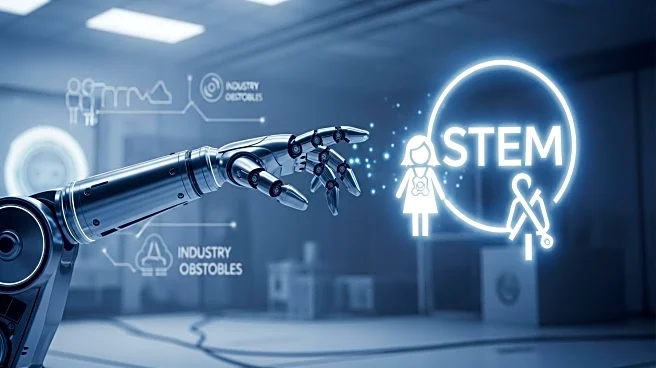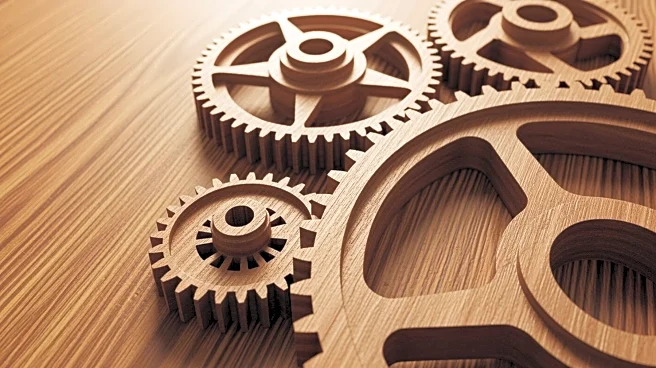What is the story about?
What's Happening?
Sue Keay, director of the University of New South Wales AI Institute, is actively promoting the inclusion of women in the fields of robotics and STEM. Keay, who has a background in geology and robotics, has been instrumental in shaping Australia's robotics sector, including the development of the country's first robotics road map. Her career has spanned roles in research science, commercialisation, and leadership positions in robotics and mining. Keay has been recognized for her contributions to the field, receiving accolades such as the Malcolm Chaikin Oration medal. Despite her achievements, Keay acknowledges the challenges faced by women in STEM, noting the lack of female role models and the gender imbalance in the industry. She emphasizes the importance of diversity in technological development, citing examples where the absence of women has led to oversight in design and functionality.
Why It's Important?
The advocacy for women in STEM and robotics is crucial as these fields continue to influence daily life and drive technological advancements. Keay's efforts highlight the need for gender diversity to ensure comprehensive and inclusive technological development. The underrepresentation of women in these sectors can lead to significant blind spots in technology design and application, affecting usability and safety. Encouraging women to enter and remain in STEM fields is essential for fostering innovation and addressing gender disparities. Keay's work serves as a call to action for industry leaders to create more welcoming environments for women, which can lead to more balanced and effective technological solutions.
What's Next?
Keay continues to advocate for women in STEM through her role at the UNSW AI Institute and as a board member of Women in Robotics. Her ongoing efforts aim to inspire more women to pursue careers in these fields and to challenge the cultural and social norms that contribute to gender imbalances. The focus remains on creating supportive environments that encourage women to participate and excel in STEM, ultimately leading to more diverse and innovative technological advancements. Keay's work is expected to influence policy and industry practices, promoting greater gender equality in STEM.
Beyond the Headlines
The push for gender diversity in STEM and robotics not only addresses immediate disparities but also has long-term implications for societal and technological progress. By ensuring women have a seat at the table, the industry can benefit from a wider range of perspectives, leading to more holistic and effective solutions. Keay's advocacy highlights the ethical responsibility of the industry to consider all users in technology development, which can prevent biases and improve overall functionality. Her work underscores the importance of challenging stereotypes and fostering an inclusive culture within traditionally male-dominated fields.
















